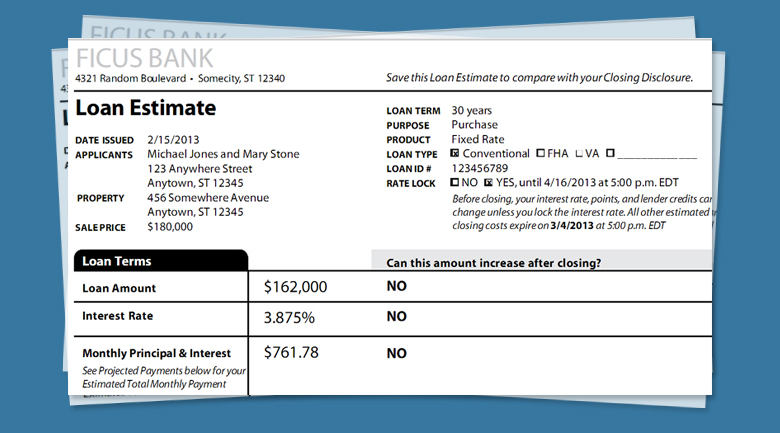
Conventional Wisdom
Conventional wisdom would seem to indicate that Fannie Mae and Freddie Mac being put into conservatorship by the government is an ominous sign and ‘bad’ for shareholders, taxpayers and the overall economy.
Lets see, Fannie and Freddie’s (remaining) shareholders now own stock that is worth as much as a copy of the New York Times Sunday edition (check) and the American tax-payer will foot the bill to the tune of tens of billions of dollars (check, although this appears to be far less expensive than letting the two GSE’s and the industry spiral downward). The overall housing economy is now doomed…not necessarily.
Could You See it Coming?
First things first, I believe this was all a bit contrived and foreseeable if one read between the lines and canceled out most of the sensational mainstream media noise surrounding the two mortgage giants fall from historic highs.
It started here with a ‘butterfly flapping its wings half-way across the world’ in late January…
…Alison Utermohlen, senior director of government affairs for the Mortgage Bankers Association, asked FASB (Financial Accounting Standards Board) to cut lenders some slack on the accounting for impaired mortgage loans that they hold on their balance sheets. She asked the board for guidance that would permit lenders to use an easier accounting standard to measure the losses on loans that they are likely to modify to avoid default and foreclosure……Based on detailed questions posed by FASB (Financial Accounting Standards Board) to Ms. Utermohlen (to which she was responding), the board seems skeptical. For one thing, the simpler FAS 5 analysis would result in smaller impairments for the lenders. Under that standard, unless lenders expect not to recover the loan principal from borrowers, they don’t have to book an impairment. The more detailed cash flow analysis involved in FAS 114 would result in losses from interest rate modifications on the loans that many banks are expected to make. Accounting analysts favor the more detailed analysis. “This situation is what FAS 114 was written for,” said Marc Siegel, head of financial research and analysis at RiskMetrics and a member of the Investors Technical Advisory Committee to FASB. “Investors deserve the right information.”
Advertisement. Scroll to continue reading.
What Does That Mean??
Interpretation: Lenders, including the GSE’s, were/are now subject to more conventional accounting practices…not good for the quarterly reports that Wall Street investors read and act on like annointed scripture. Prior to this change lenders could effectively bury certain losses that other entities must report to their shareholders. Going forward with conventional accounting guidelines, financial reports from lenders went from looking OK to insolvent almost overnight.
On July 10th 2008 William Poole, former St. Louis Federal Reserve President told Bloomberg in an interview:
Freddie Mac owed $5.2 billion more than its assets were worth in the first quarter, making it insolvent under fair value accounting rules, he said. The fair value of Fannie Mae’s assets fell 66 percent to $12.2 billion, data provided by the Washington-based company show, and may be negative next quarter, Poole said.
Fannie and Freddie stock was now akin to Enron 2.0; value evaporated almost overnight as ‘the real numbers’ surfaced and brokers began dumping the paper. On July 11th, one day after Mr Pooles comments, trading volume of Freddie Mac and Fannie Mae stock exceeded 800,000,000 shares…almost 100x normal activity…and their value plummeted.
The Options Become Clear
It quickly became apparent that the mortgage GSE’s were going to have to consider raising substantial money or entertain a government bailout. The prospect of raising money meant further stock dilution to remaining share holder, not too appetizing, and the sell off continued. So, it’s a mess and the fallout must be cauterized…
Here we are, almost 9 months after the butterfly flapped its wings, The Government is stepping in. Bad news right? Maybe, maybe not. It’s a radical move to say the least, yet could pull the housing and mortgage market out of the credit crunch and alleviate alot of downward pressure points.
“Government Takeover”
Strip away the language of ‘Government Takeover’ (that’s normally bad, mmmkay) and look closer at what now becomes possible in the short and long term for the housing sector in general and the individual homeowner.
There are potential benefits:
- Lender balance sheets will be cleaned up and thinned out.
- Mortgage rates and fees should get cheaper as a result.
- Mortgage paper will be turned into Federal paper, establishing much needed confidence from foreign investors. Its a global market, keeping foreign investment money flowing through our economy is vital to its existence in 2008 (and going forward).
- Federal paper will allow borrowers to potentially ‘work out’ their delinquent loans with far more flexibility than they could with lender owned mortgage paper.
Loan ‘work-outs’ were/are generally not in the interest of lenders, especially those who’ve retained mortgage servicing companies or run the divisions internally, since these profit centers are paid to keep homeowners in their current situation and/or handle the foreclosure process. If the business model is to keep borrowers making payments they can’t afford and/or pushing them into foreclosure, well its easy to see where the misalignment of objects and conflict of interests arise.
The government can effectively work with homeowners to restructure payment terms any way they see fit, keeping more people in their homes, substantially reducing the number foreclosures that have fostered the rapid depreciation in many housing markets around the country.
- Reduction of Wall Street volatility in what has historically been a stable segment of the bond market. Consumer confidence needs to be restored to the mortgage market, volatility and consumer confidence usually don’t coincide with each other.
Many speculators made a lot of money by short selling Fannie and Freddie’s stock, accelerating their devaluation. The SEC put a stop to this in mid July 08, by then the damage (or rewards) had been realized. Months late and billions short(ed)
Contrived?
There of course is potential downside as well, most notably the governments propensity to weild its power in the direction of the lobbyist with the biggest check book. As stated above, this all appears to be contrived and am so looking forward to seeing the details of how this all plays out.
How does this effect the wholesale market and the small to mid size broker or banker businesses? Hrmmmm…
Its the end of an era for Fannie Mae and Freddie Mac, au revoir…
Jeff started TheXBroker.com in August of 2006 to express his industry knowledge and provocative opinion. He’s been an adversary of traditional real estate and mortgage business since running his own brokerages. Formally educated in the biological sciences at Syracuse University and Barton College, once Jeff discovered how little entry level research science paid, he started his post collegiate career working for Branch Banking and Trust in The Triad area of North Carolina. He learned about the worlds of finance and real estate and began to personally purchase property at the courthouse steps. Today, Jeff is VP Operations and Business Development of ActiveRain Corp and still The XBroker








































Matt Kelly
September 8, 2008 at 7:43 am
Great post Jeff! There is a silver lining in this for everyone! These are the most important points in your post that I hope everyone pays close attention to:
Lender balance sheets will be cleaned up and thinned out.
Mortgage rates and fees should get cheaper as a result.
Mortgage paper will be turned into Federal paper, establishing much needed confidence from foreign investors. Its a global market, keeping foreign investment money flowing through our economy is vital to its existence in 2008 (and going forward).
Federal paper will allow borrowers to potentially ‘work out’ their delinquent loans with far more flexibility than they could with lender owned mortgage paper.
Remember when the government bailed out Chrysler? That worked out ok didn’t it? And Bear Sterns?
Mack
September 8, 2008 at 7:46 am
First we had “Extreme Makeover”. Pretty good show. Then we had “Extreme Makeover – Home Edition”. Pretty good show and people were helped. Now we have “Extreme Makeover – Fannie/Freddie Edition”. Hopefully many people will be helped. It is time to get the lobbyist out of the mortgage market, I just don’t know that it will happen with government, lawmakers with their hands out, in control.
Jonathan Washburn
September 8, 2008 at 9:47 am
I haven’t read this anywhere else, but it is almost exactly my gut reaction to the news. I was explaining it to my father in law yesterday, because he is about to put his home on the market, and I was hoping I wasn’t steering him in the dead wrong direction.
Thanks for your insight Jeff!
Kaye Thomas
September 8, 2008 at 10:47 am
Jeff.. I think you have read the situation correctly. People forget that Fannie started out as government entity in the late ’30’s to work with homeowners in trouble because of the Depression. It became a quasi government operation in the ’60s when it was sorta… kinda… privatized and Freddie was created sometime thereafter.
Mike Parker
September 8, 2008 at 3:43 pm
My take on this is simple: the “full faith and credit of the United States” is more of a comfort than a reality, but it will assure insured mortgages for American home buyers. Without such guarantees, it is conceivable there would be none.
Our economy is far worse off than the government will admit. I don’t think we could have sustained a complete collapse of a permanent nature in housing and mortgage lending without economic upheaval the likes of which has not been seen since the 1930’s.
No one believes that any investment is safe, anymore. However, everyone believes that we will print as much money as needed to assure our own survival, and that is the belief that makes the financing world go round, today. This takeover is gutsy and correct: better to risk billions in subsidies than our national health, and believe me, without guaranteed mortgages, the pain seen in the past two years would correlate to “2” on a scale of “10;” there simply wasn’t a choice.
.
JeffX
September 9, 2008 at 10:35 am
As an aside, here’s hoping the underwriting approval (quagmire) process improves as well. Many mortgage professionals were (are) ready to go postal on underwriters for ridiculous stip sheets.
Rates have substantially improved since this announcement, so expect delays when loans go into underwriting, my guess is lenders aren’t equipped to handle a significant uptick in business.
Bob
September 9, 2008 at 10:57 am
Excellent overview and analysis.
By far, the easiest way to make money this year that I didn’t do.
Matthew Rathbun
September 9, 2008 at 7:18 pm
I’ve read a score of these posts and opinions. Your post is by far the best and most comprehensive I’ve seen. As well balanced as this is, I still wish that the Government would take some of their new found “bailout” money and put it into in-house supervision for the lenders. In our area we could sell more houses if it wasn’t taking MONTHS to hear back from the lenders on Short Sale approvals….
media kingdom
September 19, 2008 at 7:10 pm
from a historical standpoint it’s hard to object to the government’s mass bailouts since similar debt-producing methods were put into action to save the U.S. from the Depression; maybe we’ve been headed for socialism this entire time…
Nashville Grant
February 23, 2010 at 5:54 pm
Jeff,
I love going back and reading these articles a few real estate cylces after they have been written. How are you feeling about Fannie and Freddie now that they are adjusting their lending requirement, their foreclosure ratios and HUD’s FHA standards?
Jeff Corbett
February 23, 2010 at 7:13 pm
I think they’re done in their current iteration, either being abolished or totally overhauled in 12 to 18 mos.
The adjustments you mention are just the tip, considering the Fed has decided its time to stop backstopping the MBS market en masse at the end of March…turning the market back to the private sector, oh my…